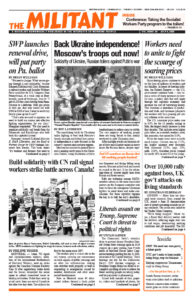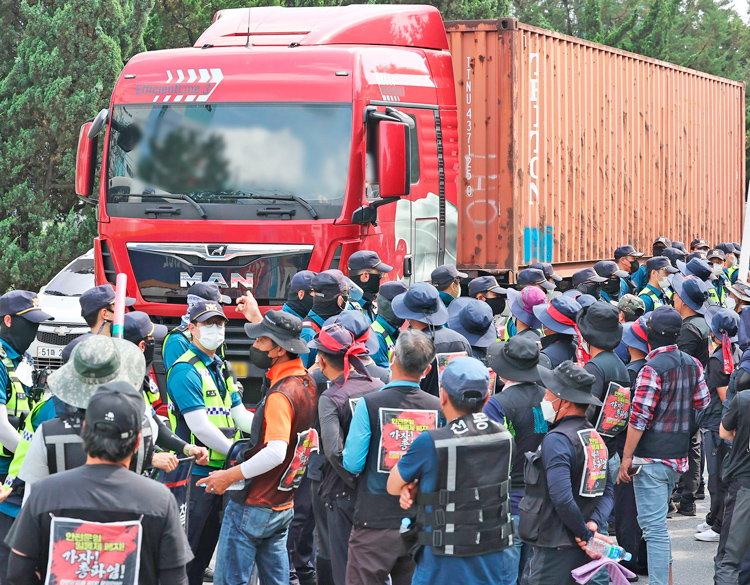After eight days on strike thousands of owner-operator truck drivers returned to work at major ports and container depots across South Korea June 15. Fighting to ensure their pay keeps up with skyrocketing fuel prices was at the heart of demands raised by the over 22,000 drivers, members of the Cargo Truckers’ Solidarity Division of the Korean Federation of Public Service and Transportation Workers’ Unions (KPTU).
The strike forced the shutdown of auto assembly lines, steel and cement factories and refineries, as well as shipments of tires, liquor and raw materials for semiconductors. Traffic at Busan, the world’s seventh-largest container port, fell by two-thirds.
The price of diesel has gone up 45% over the last year, threatening the livelihood of some 420,000 “self-employed” truck drivers. Kang Myung-gil, a nonunion driver who joined the strike, told Reuters that he makes about $2,300 a month working 15 hours a day, but his monthly fuel bill has increased by $1,000.
“We are not beggars. We want our message to be heard for that fair share,” driver Park Kyung-soo said as he cooked for fellow strikers in Incheon.
The strike began after the government refused to extend the Safe Rates System, which was set to expire at the end of the year. This applies to the transport of import/export containers and bulk cement, raising the rates paid to drivers every three months if fuel prices go up. The union wants Safe Rates made permanent and extended to all truck drivers
This is not just a pay question. “Economic pressure from low rates of pay forces drivers to engage in unsafe driving practices, such as overloading, speeding, and driving while fatigued,” the union said in a statement. “Average working time of 16 hours a day for container drivers,” they added, is one of the reasons for an increase in highway accidents over the last three years.
Union officials ended the strike after the Ministry of Land, Infrastructure and Transport agreed to extend the system — which needs to be ratified by the National Assembly — and to “discuss” its expansion to other truckers and “consider” increasing fuel subsidies.
The bosses — like the Chamber of Commerce and Industry — attacked the decision, saying it puts the burden of paying for higher wages on the shippers.


